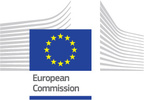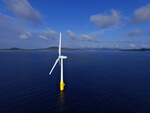News Release from European Commission
Wind Industry Profile of
State aid: Commission approves reductions on offshore surcharge for electro-intensive and railway companies in Germany
Following an amendment to the German Energy Act (EnWG), as of 2019 the costs of connecting offshore wind installations to the main electricity grid will be financed via an offshore surcharge (Offshore-Netzumlage), to be paid by electricity consumers.
The amended German Energy Act also provides for reductions from this offshore surcharge for certain electro-intensive industrial users, as well as for railway companies. The reductions will confer an advantage to these companies, as it will lower their financial burden compared to other companies that will not benefit from them.
These reductions in offshore surcharges were notified to the Commission for review under State aid rules. The Commission has assessed the measure under both its Guidelines on State aid for environmental protection and energy 2014-2020 and its Guidelines on State aid for railways undertaking. The investigation found that:
- the reductions are limited to companies that are active in sectors exposed to international trade,
- as regards electro-intensive users, the reductions are proportionate. They provide a sustainable financing basis for supporting offshore wind installations, without putting at risk the competitiveness of companies exposed to international trade.
- as regards railway companies, the reductions help to limit the rail sector's electricity costs, improving the competitiveness of rail transport compared to other more polluting forms of transport.
On this basis, the Commission concluded that the German plans to grant reductions on offshore surcharges to electro-intensive users and railways are in line with EU State aid rules, because they will contribute to the competitiveness of these companies without unduly distorting competition in the Single Market.
Background
Germany aims to increase the installed capacity of offshore wind installations to 6,500 megawatts by 2020 and 15,000 megawatts by 2030. To this end, the German Energy Act provides for the legal framework for the planning, building and operating of the power lines connecting offshore wind installations to the main grid. The connecting costs, which are currently financed via the general network charges, will be transferred into a surcharge system in order to align the mechanisms of financing the support for electricity produced from renewable energies and cogeneration under the Renewable Energy Act (EEG) and the CHP-Act (KWKG).
Accordingly, the reductions of the offshore surcharge are identical to the reductions granted for certain users under the EEG and the CHP-Act and previously approved by the Commission (SA.38632, SA.42393, SA.43666 and SA.38728).
- Source:
- European Commission
- Author:
- Press Office
- Link:
- europa.eu/...
- Keywords:
- EU, European Commission, Europe, Germany, state aid, offshore surcharge, electro-intensive
























